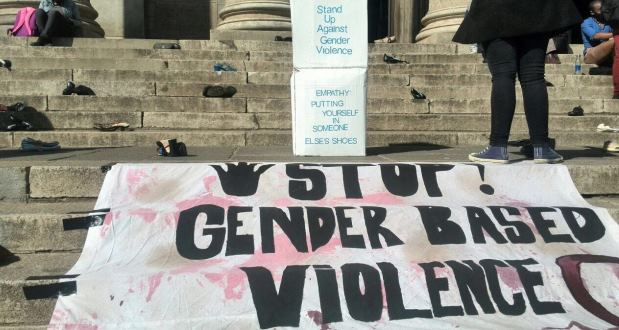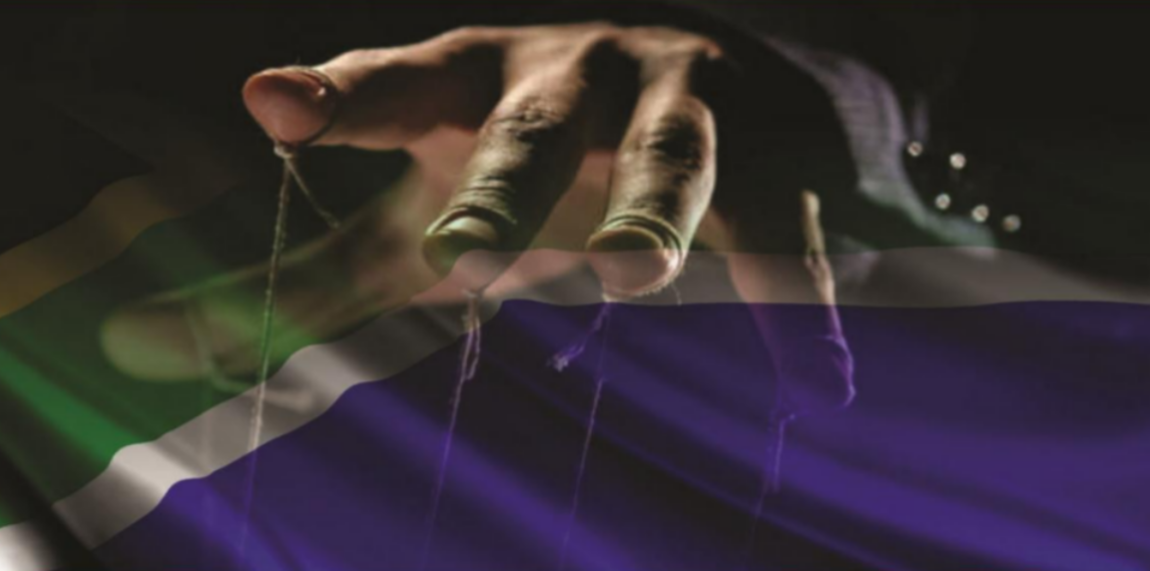Students have been consistently protesting the rampant sexual harassment and violence that takes place at institutions of higher learning. Hoping to address these concerns, former higher education minister Naledi Pandor appointed a task team to combat sexual harassment and sexual violence at universities.
The task team is made up of: Lisa Vetten, Dr Babalwa Magoqwana, Professor Jackie Dugard, Professor Pumla Gqola, Dr Robert Morrell, Jerome September, Professor Malehoko Tshoaedi, Corinne Knowles and a South African Union of Students-nominated student representative.
Pandor approved the task team on May 24. Following President Cyril Ramaphosa’s cabinet announcement on May 29, Dr Blade Nzimande has been reappointed as the higher education minister. Pandor is now the minister of international relations.
A number of developments could point to the minister’s decision to appoint the task team. Media coverage of sexual harassment and rape at different campuses this past decade, and a presidential commitment to combat gender-based violence nationally are some of them. But one important catalyst was an open letter to the minister penned by feminist academics.
Academics’ open letter to higher education minister
In March, a group of academics wrote an open letter to the higher education minister highlighting how sexual violence has become normalised at universities. The academics called on the department to implement steps to help prevent sexual violence on South African campuses.
These steps included an investigation into the extent of sexual offences directed at staff and students, for the department to publish a registry of offenders on its website and to blacklist offenders. The ministry must standardise the resources of offices dealing with sexual offences and forge a charter of ethics concerning the eradication of sexual harassment and violence to be signed by staff and students in leadership. Another recommended step is for vice chancellors to disclose statistics on sexual offences collected in the institutions in mandatory quarterly reports.
Pandor met with some of the academics to discuss the letter and related matters in April 2019.
Along with the task team appointment, the department released a policy framework to address gender-based violence in the higher education and training sector for public comment. Those concerned had until June 3 to comment.
Painting a picture of the broader issues with sexual violence on SA campuses
Researcher Lisa Vetten became involved with the department of higher education following the 2016 #RUReferenceList protests at Rhodes University. The ministry appointed Vetten as a technical assistant and tasked her with developing the framework to ensure that universities would develop and institute policy to address sexual violence.
The first documented university protests against sexual violence that Vetten found took place in 1985 at Rhodes University. Since then, there has been a persistent cycle of protests on South African campuses. “It’s time to stop the cycle of protest and institutionalise something. We also need to start introducing accountability mechanisms. Universities have to start reporting what they’re doing, explaining what they’re doing, paying attention to this issue and putting funding into it,” Vetten said.
With this work, Vetten hopes that we will have a broader picture of the problem of sexual violence on South African campuses. Most of what we know comes from historically white institutions like Wits University and the University of Cape Town. Technical colleges and historically black universities have fallen through the cracks.
“Different universities have different problems,” Vetten said. Speaking to the class divide between historically black and historically white institutions, she said: “Questions of sex for marks could be more prevalent at [historically black] universities because you have students who are much more vulnerable and easily exploited than students from a middle class background.”
Some universities have better mechanisms in place to address sexual violence than others. This has to do with money and resources.
There needs to be resources put into place to support the systems. It is the department of higher education to make funding available to implement the recommendations, Vetten said.
Vetten also says she hopes this work will give the ministry better insight into the experiences of staff, who are often overlooked.
Combating the problem without compromising academic freedom
With Nzimande taking over from Pandor, there have been some concerns about the continuity of the task team. In an interview with The Daily Vox Gqola, who has been appointed in the task team, said she expects the work to continue despite the change of ministers.
“There will still be significant continuity in terms of the senior staff, like the director general in whose ambit this work will take place. Dr Nzimande has been in the portfolio before, so I can’t imagine he is unaware of the challenges that gave rise to our composition as an advisory task team,” Gqola said.
The task team will assess how to intervene to create higher education institutions that are safe learning and working environments, free from the pervasive gendered violence, Gqola explained. This may include advising on the best format to answer remaining questions about the patterns of sexual violence in institutions with different histories and machinery, combining thinking to develop institutions to take on the necessary anti-gender-based violence work, and advising on what kinds of inter-institutional mechanisms are needed.
“There is an urgent need to come up with innovative ways to deal with gendered violence in its various manifestations, and to do so in ways that are meaningful, impactful and also respectful of academic freedom,” Gqola said.
Academics don’t work for the government and cannot take instructions as though they do.
But as a sector, higher education needs better mechanisms to deal with sexual violence and to make it intolerable on campuses and across campuses, Gqola said.
Gqola hopes that the work will help provide “a full understanding of what we are up against collectively in order to better protect students and staff against gender violence, and to best deal with it swiftly and decisively when it happens.” She wants to see better deterrents in place within and across institutions, and better control of movement of sexual harassers across the system. “In the current system, violators simply escape and jump ship to get an appointment elsewhere. That is a travesty,” she said.
As a feminist, Gqola is always interested in how we can move closer to a society free from patriarchal violence of all kinds, sand hopes the coutcomes of the task team will contribute toward that. “Bringing together a range of people who have variously, and each extensively, worked on issues of gender power and violence, as well as how to shift those cultures is useful,” she said.
The task team will meet in June to discuss how to implement the framework and its recommendations. The advisory process will be ongoing and will conclude in June 2020.









